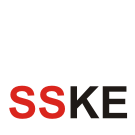From SSKE
Considered by computer scientist and former Research Staff Member at IBM Liang-Jie Zhang as a pure technological fraction of Services Computing, Service-oriented Computing (SoC) represents a promising paradigm for enabling the interconnection of independent applications within and across organizational boundaries. SOC utilizes services as the constructs to support the development of rapid, low-cost and easy composition of distributed applications. Services are autonomous, platform-independent computational entities that can be used in a platform independent way. They can be described, published, discovered, and dynamically assembled for developing massively distributed, interoperable and evolvable systems. Services perform functions that can range from answering simple requests to executing sophisticated business processes requiring peer-to-peer relationships between possibly multiple layers of service consumers and providers. Any piece of code and any application component deployed on a system can be reused and transformed into a network-available service. Services reflect a "service-oriented" approach to programming, based on the idea of composing applications by discovering and invoking network-available services rather than building new applications or by invoking available applications to accomplish some task. Services are most often built in a way that is independent of the context in which they are used. This means that the service provider and the consumers are loosely coupled.
All major computer corporations, including IBM, Microsoft, Oracle, HP, SAP, BEA, Intel, Cisco, Juniper and Sun Microsystems have moved towards the SOC paradigm. Languages, protocols, and standards have been developed to support SOC applications. Furthermore, government agencies, such as the U.S. Department of Defense (DoD) and NASA, have adopted SOC. This new paradigm is also being adopted by major computer users, including banks (Web banking services), retailers (Web shopping services), airlines (Web booking services), travel agencies (Web composite services that link together the services from airlines, hotels and car rentals). Universities around the world (e.g., US, UK, Japan, Germany, China, and Singapore) have geared their computing research toward SOC-based modeling languages.
The main concepts related to SOC are:
- Service-Oriented Architecture, the fundamental architectural model that supports the overall paradigm of Services Computing from an architectural point of view;
- Web Service, which is considered the default underlying technology that integrates the SOA conceptual model with the IT technology.



